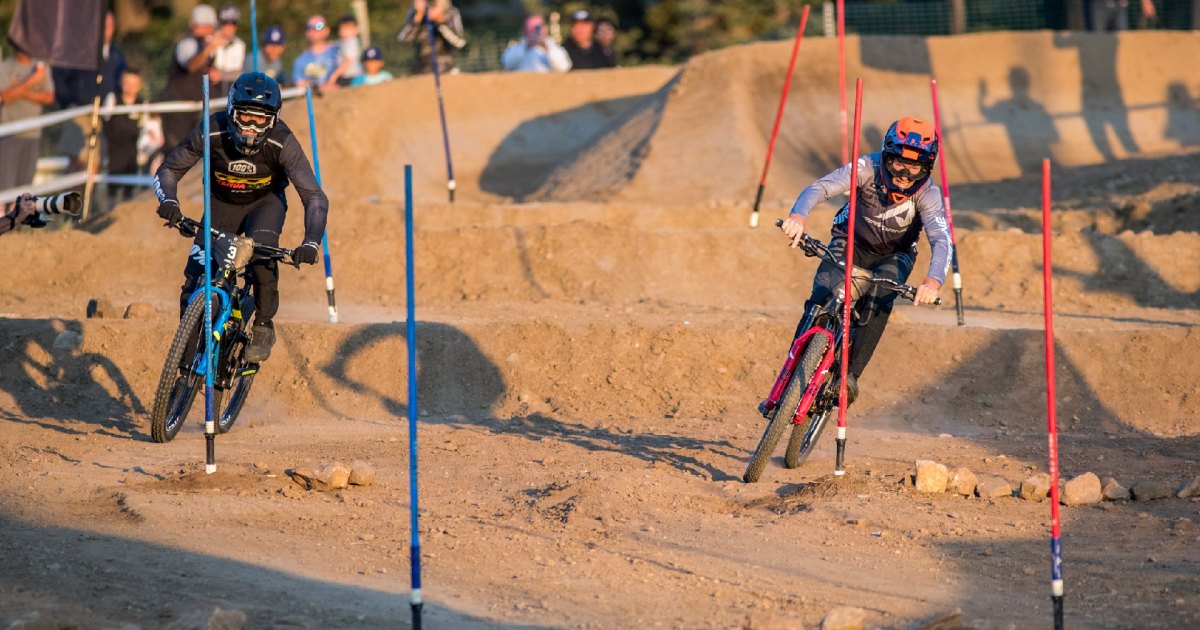No products in the cart.
Fitness Tips
Kyle Strait on ‘Hillbilly Science’ of Building World Class Dual Slalom Course
The second annual Strait Acres Dual Slalom Invitational just went off at Snow Summit Resort in Big Bear Lake, California. Racers from all over were privileged to get down on a world-class dual slalom course masterminded by legendary mountain biker Kyle Strait. If you haven’t seen dual slalom, it’s side-by-side racing on individual sides of a course. A differential is taken from one rider to the next, then racers switch sides and duke it out again, until the top three are standing on the podium.
This year there was a change of venue. Kyle Strait and his wife, Rachel, brought the race from their own backyard to Snow Summit’s resort. Their intention was to expand the race’s potential for mountain biking and protect this specific style of racing—and, boy, did they deliver.
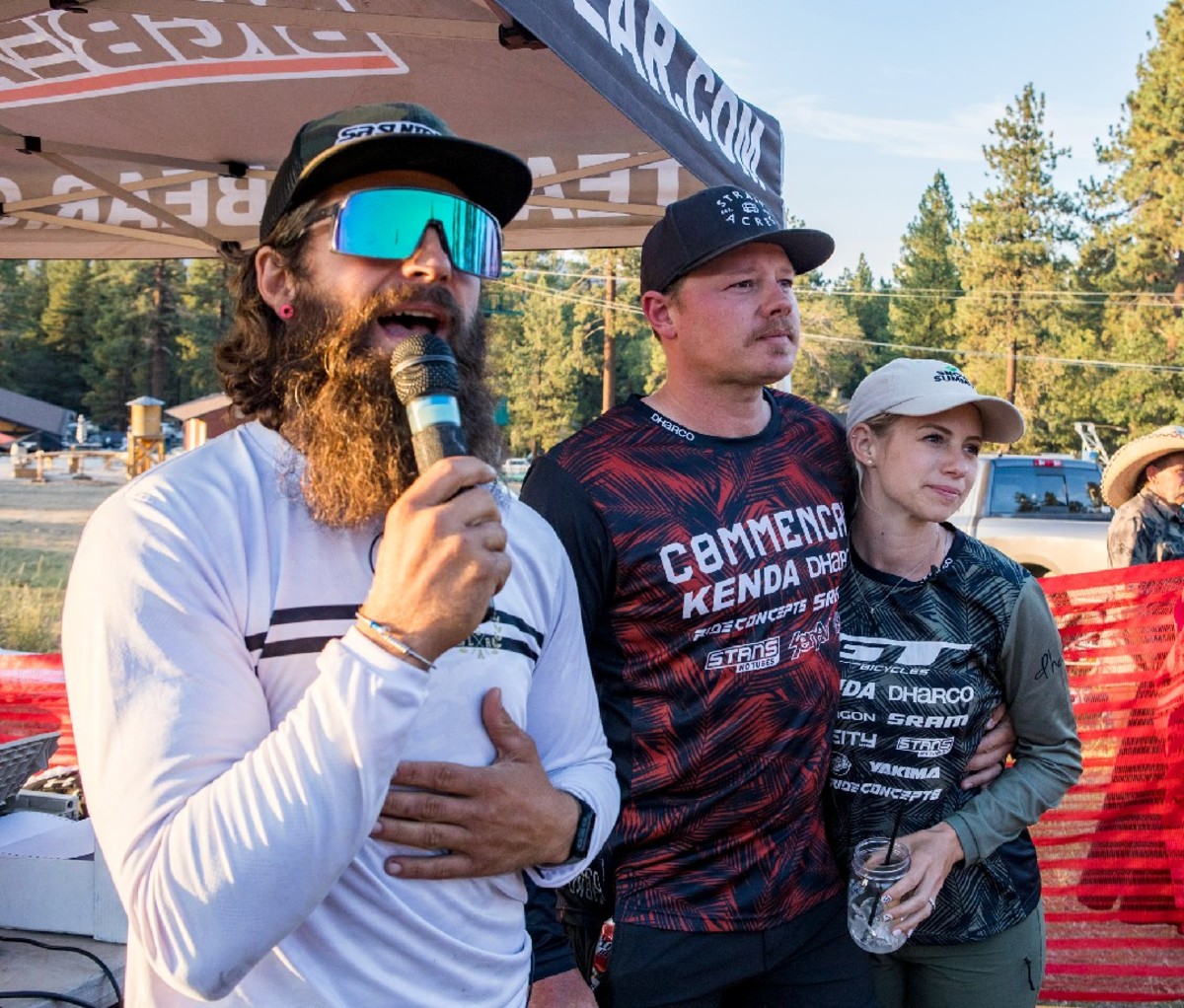
Announcer/competitor Mikey Haderer with Kyle and Rachel Strait right before the final round of competition. Chris Wellhausen
“Last year, we had 20 pro men and 10 pro women competing in the Invitational at our house,” Rachel Strait told Men’s Journal. “The excitement around the event was completely unexpected and inspired us to push hard in 2021 to make it happen again. One concern was the possibility the hype was only there because almost all events were canceled in 2020. With over 200 racers last week, amateurs and pros combined, I think we debunked that theory.”
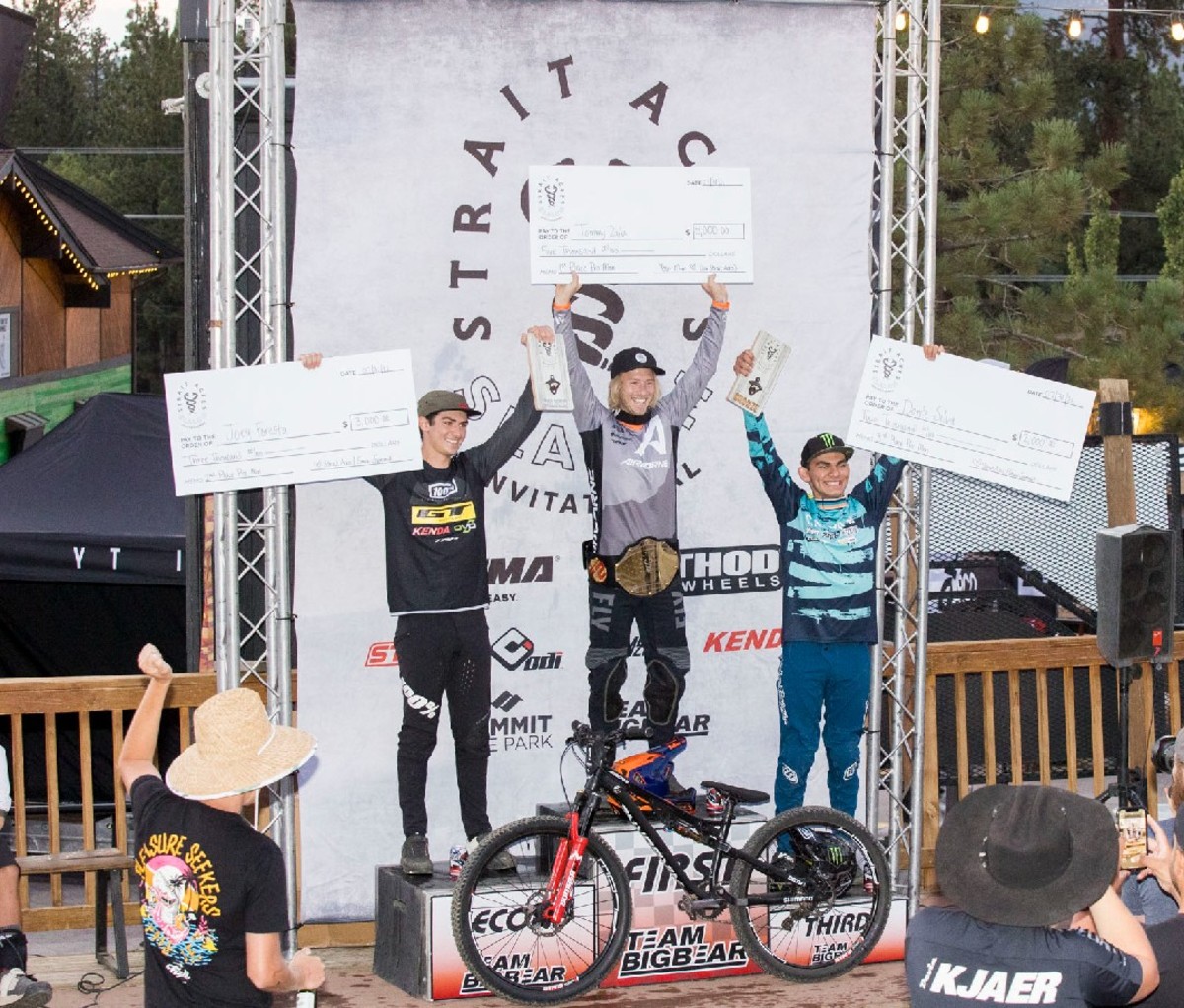
The 2021 Strait Acres Dual Slalom Invitational Mens Pro podium with Tommy Zula in first-place, second going to Joey Foresta, and Dante Silva in third. Chris Wellhausen
The heats were fiercely competitive, with $20,000 on the line. For added insight on the Strait Acres Dual Slalom Invitational, we spoke to Kyle Strait about building one of the best dual slalom courses of all time, what kind of bike control it takes to win, and pro tips for improving your own riding.
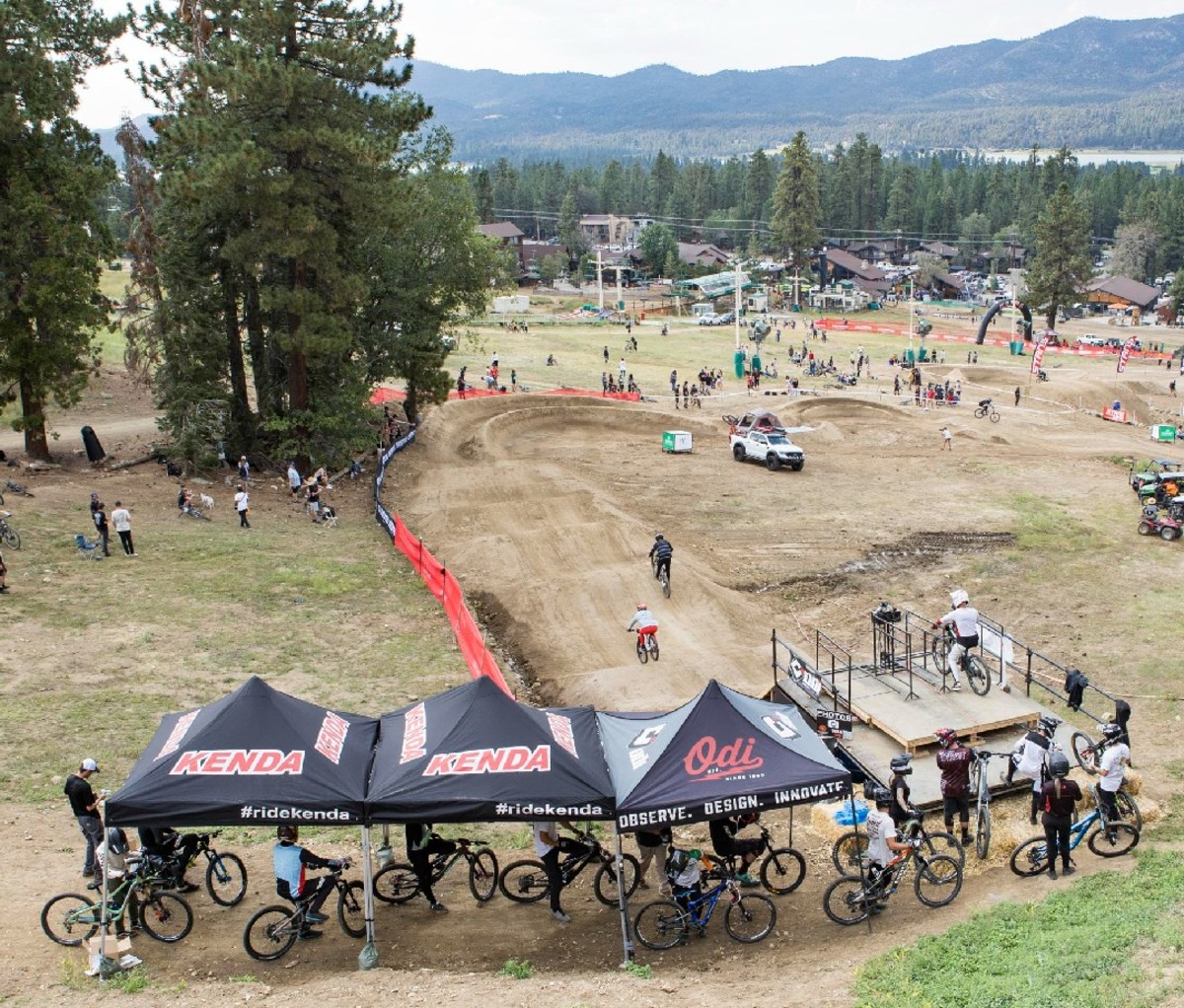
The 2nd Annual Strait Acres Dual Slalom Invitational at Snow Summit Resort Chris Wellhausen
Men’s Journal: Why did you partner with Snow Summit, and where did the inspiration for your dual slalom course come from?
Kyle Strait: Partnering gives the Invitational a bigger canvas to grow, allowing us to build the best tracks possible. Summit was super down when I presented them the idea. They wanted to be a big player in it. I’m grateful for the area we have to work with, the machines, and staff. It was beyond incredible to have five to six dudes every day building a sick track. The inspiration stems from a lot of my global dual-slalom experiences. Most of these features are ones I’ve ridden over time…I just changed them in ways to be better.
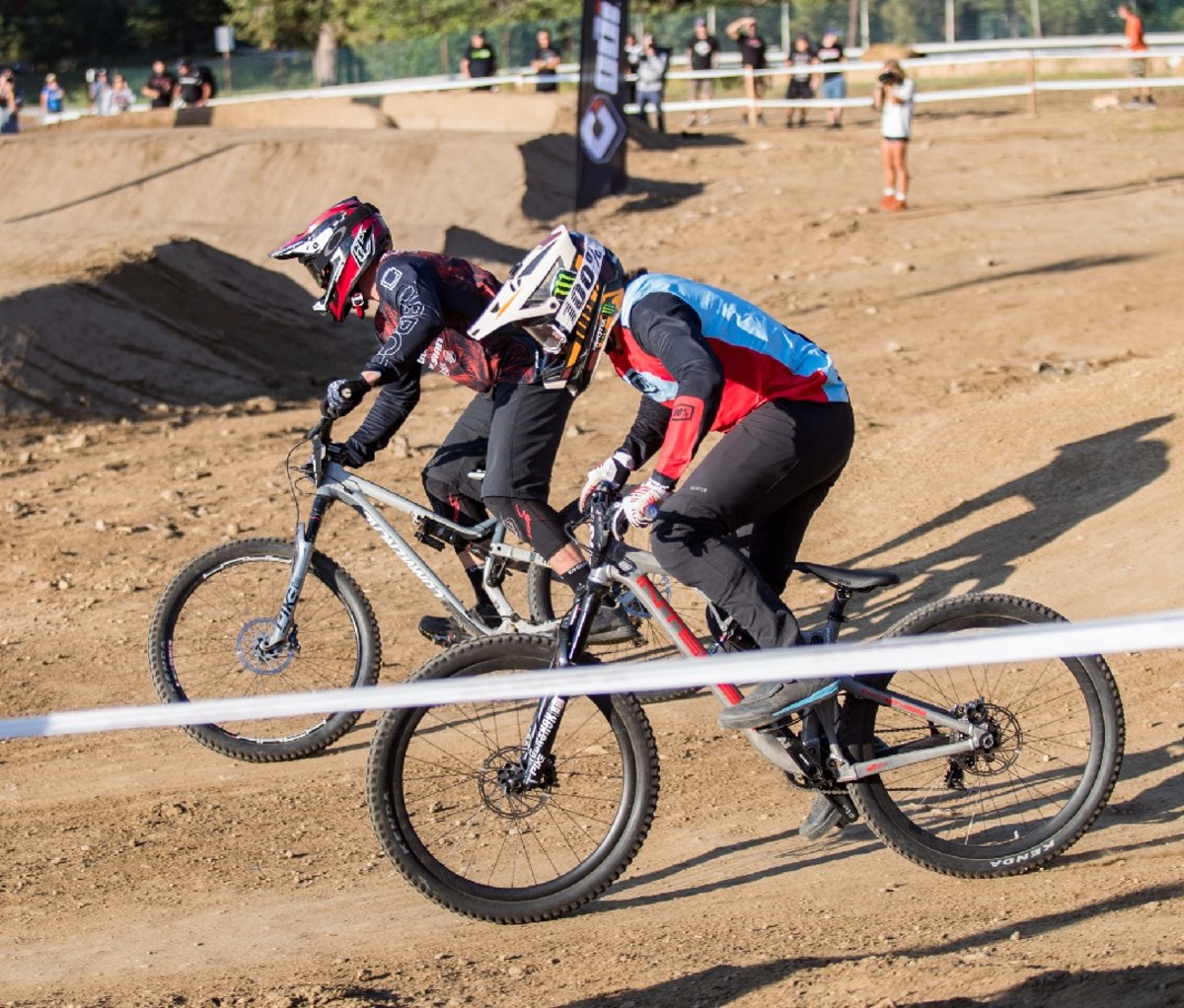
A battle between powerhouses, as Kyle Strait is challenged by Cole Suetos. Chris Wellhausen
What makes the best dual slalom courses?
The best dual slalom courses have a diverse mixture of obstacles. Too much of one thing is not as much fun. Going out of the start gate [of the 2021 Strait Acres Dual Slalom Invitational], the first straight is very BMX, going into a MTB style—tight, kind of backyard pump track—and from there it goes into a super-fast freeride; we have a hole into a huge roller you can scrub. The rest of the course flows similarly with rhythm sections: deep berms until you get into flat corners that have a series of slalom gate bashes—each one with one-foot drops—that brings you right into the finish line.
Does architecture come into play, or are you really just basing the course design off riding and building experience?
I like to call it hillbilly science. It’s just skills learned over many years of trial and error, seeing what works, what doesn’t. I can visually look at something and tell it looks great or if adjustments are needed.
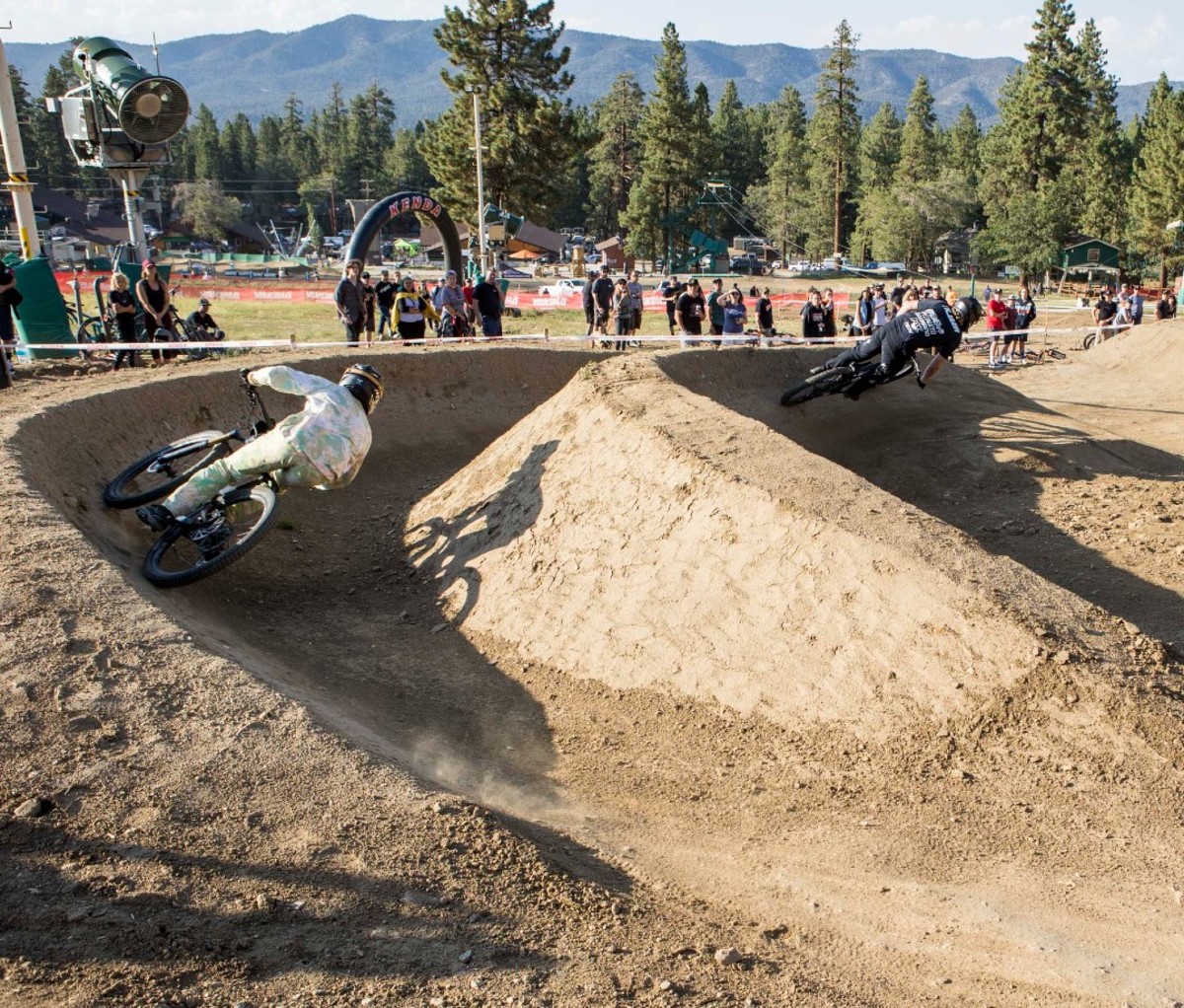
Dylan Stark and Devin Kjaer railing turns deep in the pockets of these berms. Chris Wellhausen
Why are the berms so deep?
You have a fixed point of entry and exit. The only thing you can really do is make the berm steeper to hold your tires better. You can see it in NASCAR and freeway off-and-on ramp design. You start putting a little grade to that, and all of a sudden you get more traction, more down force. That goes across the board with dual slalom courses. The steeper the berms are, the faster we can go through them, and still hold traction. I enjoy hitting berms like that because sometimes there’s a limit on a trail and you’re only able to be so fast because you only get so much traction. With steep berms, it just creates more traction and downforce.
What bike control necessities does it take to win a dual slalom race specifically?
The track is only a 30-second sprint, so you can’t make any mistakes; your accuracy must be on point, all day, every single run. Pinpoint skills must be tip-top. Accuracy and consistency are crucial keys with slalom, because you’re doing so many runs. By the time you get to the finals, you’ve done 12-plus runs. No matter if you’re the fastest guy of the day or a qualifier, you must make it through all the rounds. It’s not just having mental confidence; you can’t make any mistakes.
How is it a brake game? You never hear tires skid or lock up.
Certain berms have a speed limit, so you must adjust your speed accordingly. If you’re braking front and rear evenly, that’s how you slow down the fastest and keep the most control. I like to explain in coaching that if you’re skidding, you’re not in control, and you have less traction. If you can cut your brake time in half, brake harder in the correct spots, you have more traction and more control at the right times.
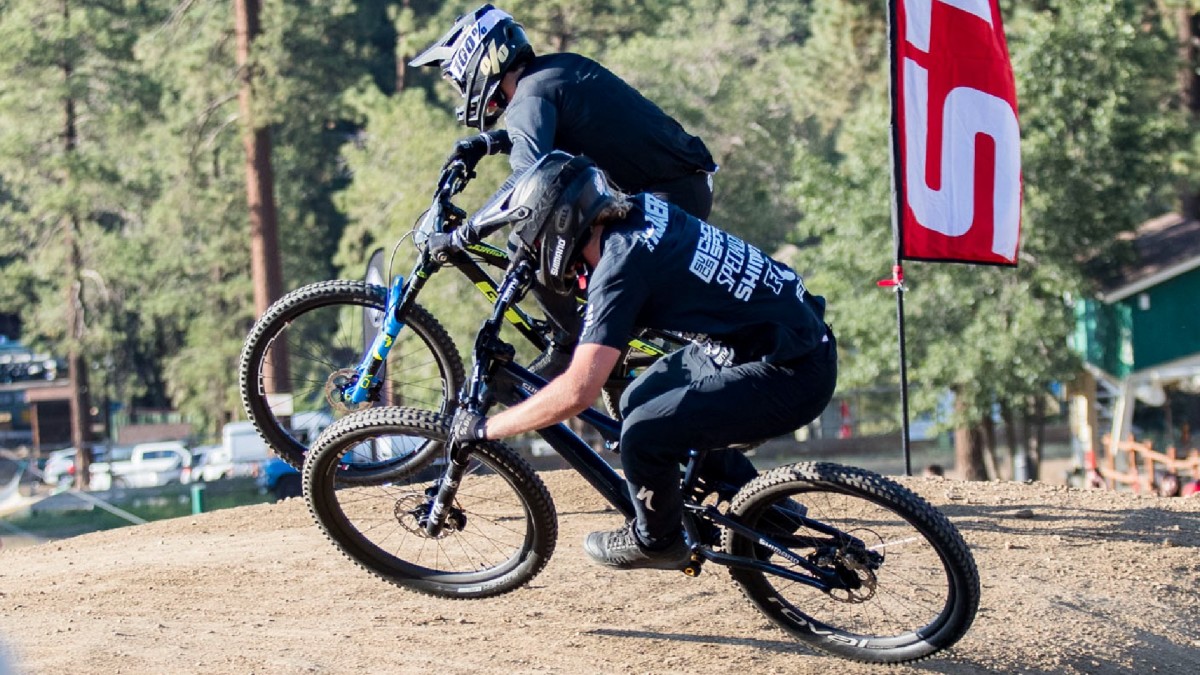
Joey Foresta holds a slim lead on Devin Kjaer at the Strait Acres Dual Slalom Invitational. Chris Wellhausen
Explain what a scrub is—and how the hell you control your bike to scrub so well?!
Your main objective is to scrub speed. A lot of times, when you’re setting up to a jump or feature, you’re coming in with too much speed. If you don’t scrub it, you go way past the landing. What you’re trying to do is scrub your speed without scrubbing too much, so you can still land on the backside of said feature. It all comes from motocross background, where Bubba Stewart learned to do that over the triple. It directly translates to MTB.
The way you go about doing one is to combine speed and commitment, a little extra speed than you would if you were going to jump the feature. I aim for one side of the jump and lean my bike and body as low as possible. From there, the bike whips out. Once you’re in the air, it allows the bike to go sideways. Now your goal is obviously to land straight to be able to continue on the trail. It’s something that’s learned over time and lots of practice… falling down, sliding out.
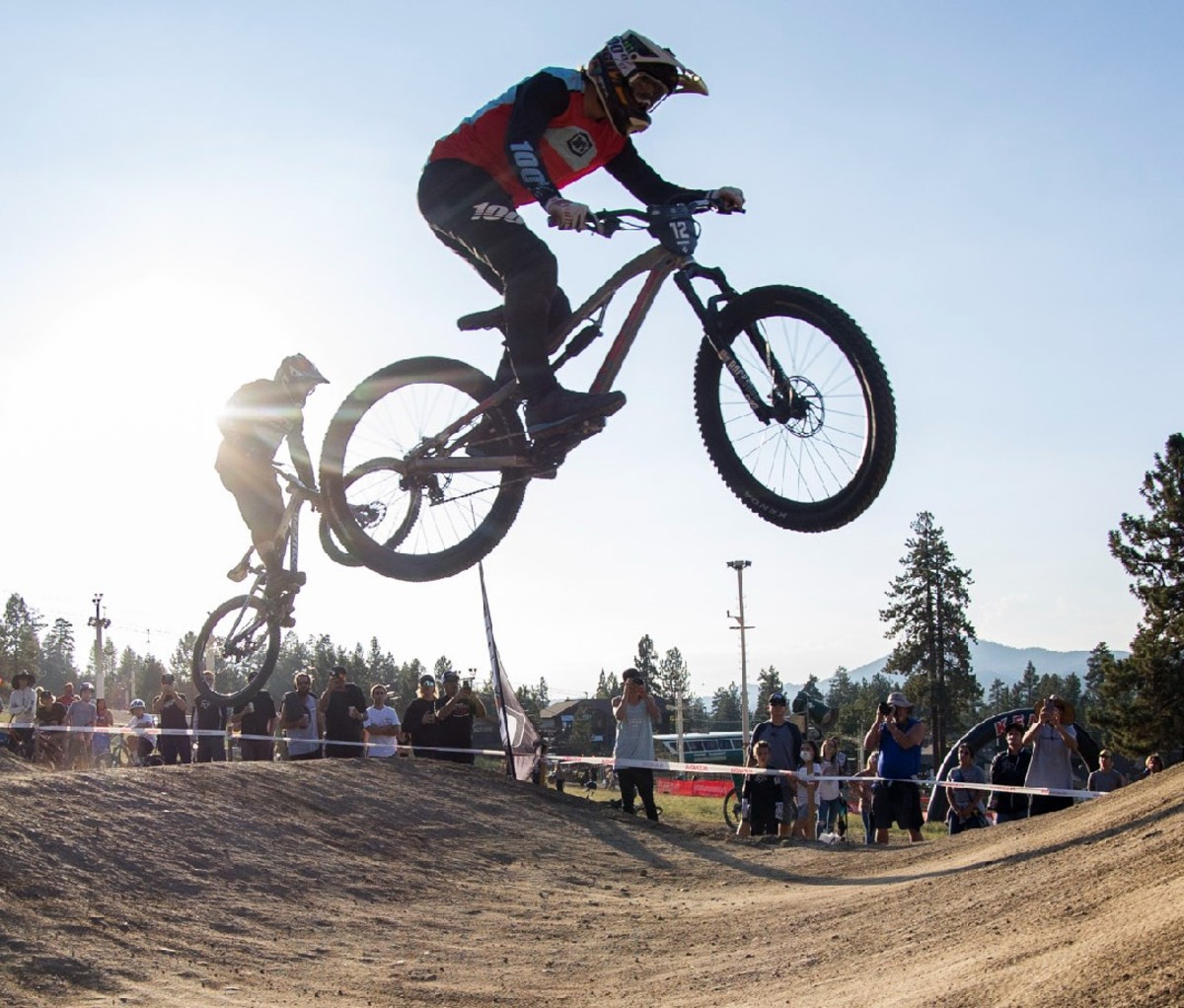
“It was definitely an awesome feeling to race against Kyle. The strength and experience this guy has is insane and it was an absolute privilege to line up next to him at his event,” said Cole Suetos. Chris Wellhausen
What’s your opinion on jumping in head-to-head competition?
It’s way faster to jump but stay low in, say, that five-roller section than it is to roll, because you can only go so fast rolling. That’s when it’s the case of jumping or gapping versus rolling and doing a manual.
What bike parts do you depend on most when racing dual slalom?
It’s always a combination, but I’m a suspension guy. For slalom, you need a supercross kind of setup—as opposed to motocross—because of how hard they’re hitting the jumps. For me it’s getting my suspension to where I can push really hard to hit those corners. If the suspension isn’t stiff enough, you kind of wallow out; it gets low and you can’t hold a correct line. Same thing goes for jumping and flat corners. I set my suspension to where it has a small bump of sensitivity to keep traction in those flat corners, but is hard enough for those corners and jumps. With all that mixed together plus tire choice and a seven-speed drivetrain, because I’m just blasting off gears and putting a lot power into the pedals.
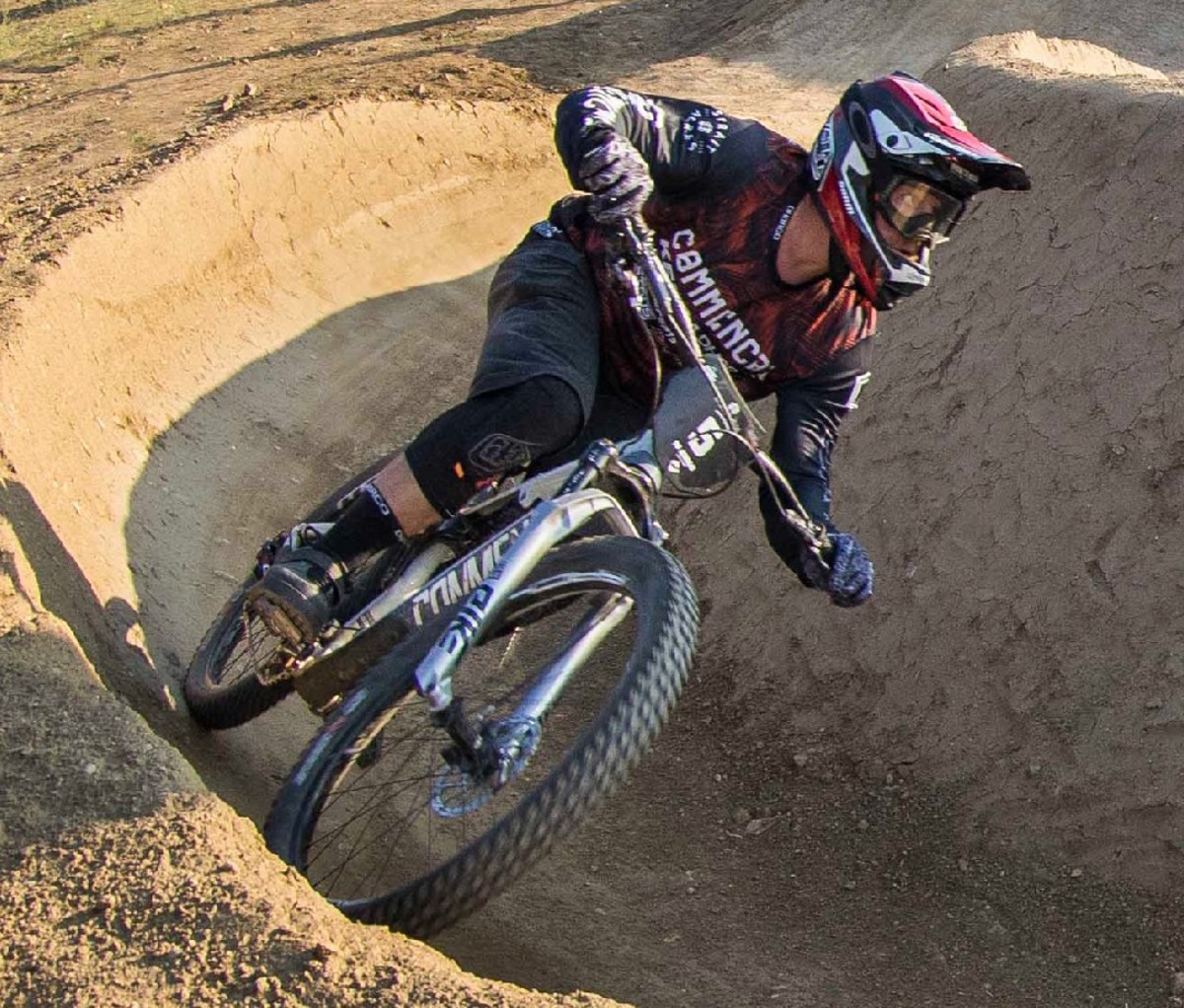
Kyle Strait rides a berm at the Strait Acres Dual Slalom Invitational. Chris Wellhausen
What gear are you rocking?
Tires: Kenda Pinner in front and Booster on rear tire.
Wheels: Stans No Tubes Flow MK3
Suspension: Rock Shock 140mm Pike fork, Rock Shock Super Deluxe in rear
Drivetrain: SRAM XO1 DH
Frame: Commencal Meta TR29
Grips: Sensus Meaty Paws
Bars: Signature SRAM bars cut down to 760mm
Shoes: Ride Concepts Kyle Strait
Seat: SDG Bel-Air III
For access to exclusive gear videos, celebrity interviews, and more, subscribe on YouTube!
Source link

